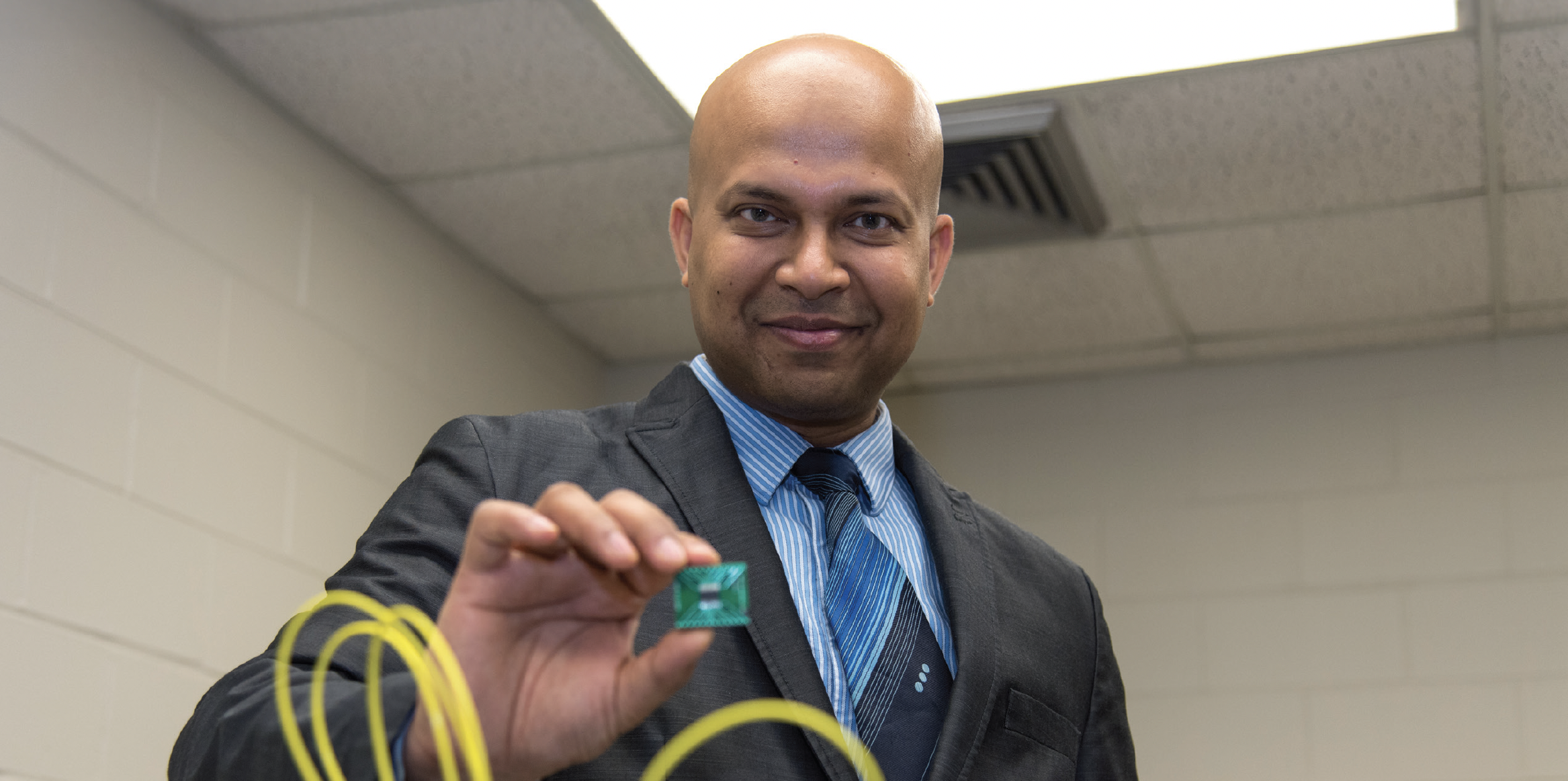Exploring security solutions for semiconductor supply chains
Electrical and Computer Engineering
By Joe McAdory

Rapid advancements in the semiconductor industry have enabled the broad adoption of electronics into multiple sectors of society, including commercial, industrial and defense spaces, often improving quality of life while increasing business efficiency. That’s the good news.
The globalization of electronics, however, opens a Pandora’s box of threats with untrusted products, counterfeit integrated circuits, intellectual property piracy, cloning and other malicious modifications. That’s the bad news.
Ujjwal Guin, the Godbold Associate Professor of electrical and computer engineering, has an idea that could help resolve some of these potential issues. His co-authored proposal, “Securing semiconductor supply chains and networks using zero-knowledge proofs and blockchain,” earned a $1.8 million grant from the Air Force Office of Scientific Research (AFSOR). He is joined by co-PIs from the University of Southern California, Cornell and Tel-Aviv Universities.
“The primary objective of this proposal is to develop novel solutions using zero-knowledge proofs and blockchain technologies to enable security in electronic hardware, as well as to enable routing data securely over dynamic communication networks,” Guin said.
“Our objective is to integrate zero-knowledge proofs into blockchain to address various hardware and network threats.”
Guin said these proofs help secure the Internet of Things and cyber-physical systems against malicious adversaries by creating zero-knowledge properties, allowing an adversary to “learn nothing.” In the meantime, the proof protocol “can effectively identify the adversaries with inherent properties.”
Researchers

